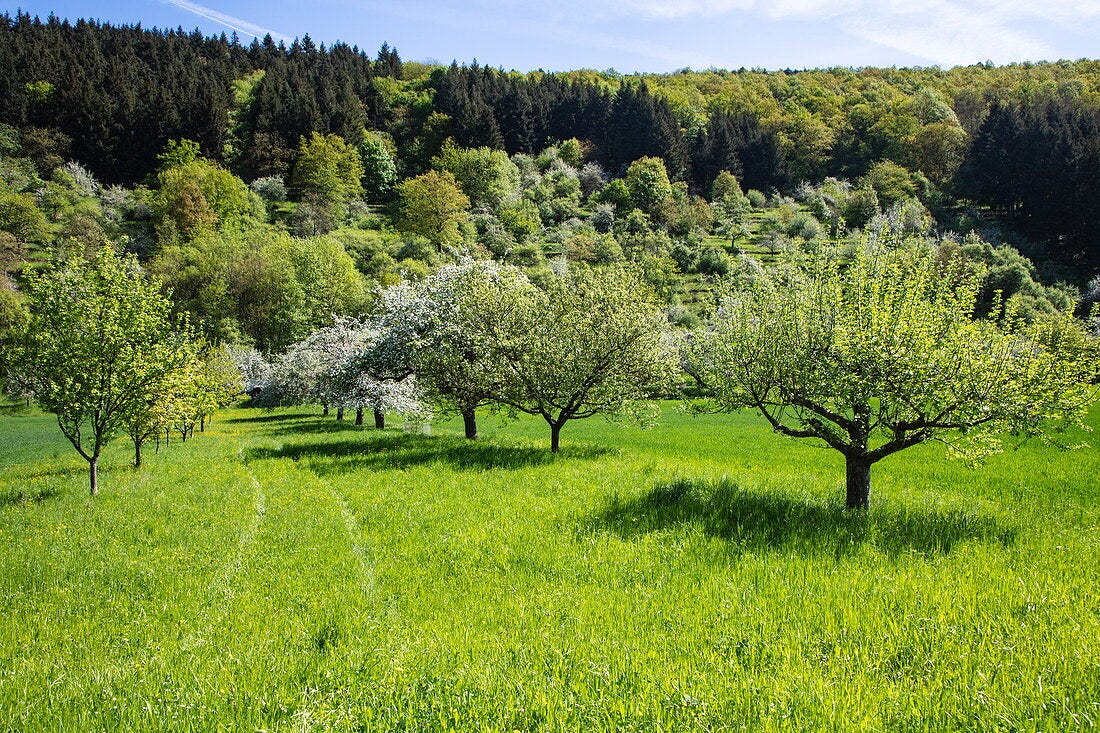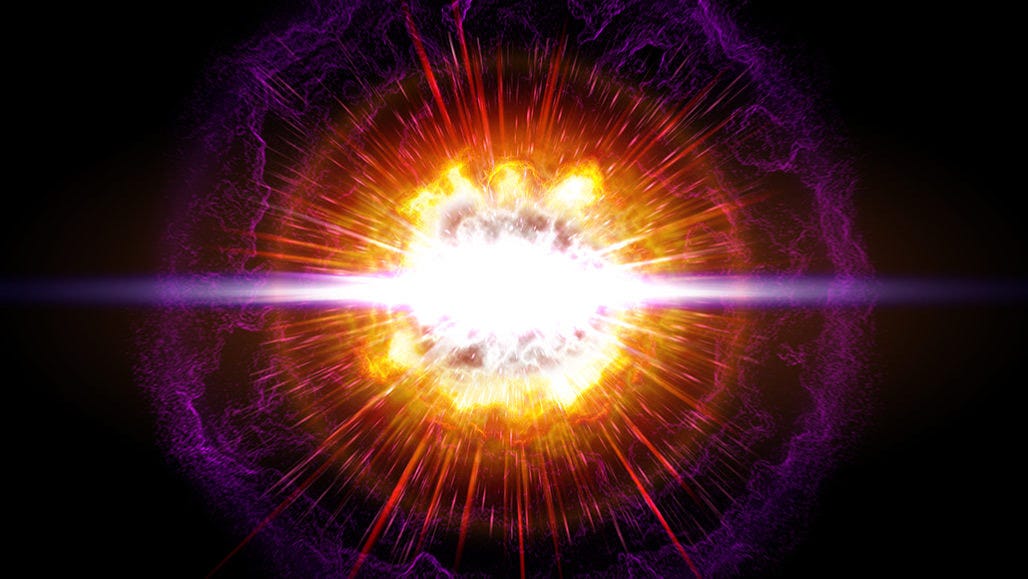First Things First
For the first reading, I started with Genesis 1-4. Before I get into the specific observations and musings, I want to make it clear that this isn’t from a deep study. I read several different translations, but didn’t read any books or commentaries during my reading. However, I did pull from knowledge or things I’d learned in the past, and I even include some here. The questions I ask are out of curiosity, and also serve as starting points for future learning. If you have information to contribute, you are very welcome to share it. However, please don’t assume that I haven’t or won’t put more into learning about these questions. I intend to. I simply want to share this part of my process and invite y’all to join and participate.
The Observations and the Musings
Adam wasn’t formed in Eden. Genesis 2:8, 15; 3:24
This might not be significant on its own, but it is interesting to me. I don’t know that I was ever taught explicitly that Creation happened in Eden, but with the storytelling and imagery used in lessons, there seemed to be an assumption that Adam and Eve were created in the Garden of Eden. Recognizing this distinction just now after over 20 years of lessons, sermons, devotions, class assignments, and more, makes me think of two things. One, of how easy it is for beliefs to change through slight details left out over time or in the mass production of flash cards and story lessons inadvertently (or maybe deliberately) spreading misinformation. As far as my experience goes, most of us, especially as children, weren’t encouraged to question or investigate where our teaching came from. This makes it easy for beliefs and traditions to shift over time without being noticed or challenged widely. And two, if I missed this detail, how many other details might I have missed or have been left out of teachings? How could this have affected what and how I believed? And what does this mean about “traditional” teachings in general?
The Tree of life wasn’t a concern until after they had eaten from the Tree of Knowledge. Genesis 2:16-17 ; 3:22, 24.
Often in the creation story and the story of “the Fall,” both the Tree of Knowledge of Good and Evil and the Tree of Life are named multiple times. Also, the term “Tree in middle of the garden” is used. As the story becomes ingrained in our minds, the two trees become grouped together. So much so, that I have never heard a lesson or a sermon even mention that the command was only concerning the Tree of Knowledge. It is an unconscious assumption and association of the command with both trees. After noticing this distinction, I began to wonder. If the Tree of Life gave immortality, as is implied in 3:22, does this mean that immortality would have been welcome as long as they never ate of the Tree of Knowledge? Immortal like a god, but not knowing like a god was okay. But knowing like a god AND immortal like a god, that was not okay. Had you noticed this before? What thoughts or questions come to your mind when you think about this distinction?
Different orders of Creation. Genesis 1-2
From my experience, story lessons and sermons almost exclusively use Genesis 1 for their order of creation AND for their support of creation in six literal days. And along with that belief typically is a belief that the Bible is a literal and accurate history book (even though this part is written in poetry). So, based on that belief, only one account of creation can be accepted. I say this because in Genesis 1, creation is described in six days and in this order: 1) light and dark, 2) oceans and atmosphere, 3) land and plants, 4) sun, moon, and stars, 5) animals (land and water), and then 6) humans at the same time. But in Genesis 2, creation is described as all happening in one day (or maybe the distinction of days wasn’t important), and the animals were created after man was, and then woman was created at the end. Not only that, God planted a separate, specific garden right after creating man, put the man in there, and then created the animals. Why did it take so long for me to notice the separate accounts of creation? Probably because I was conditioned to believe that I couldn’t be saved if believed the Bible wasn’t inerrant. So I had to believe that there were no contradictions in a face-value reading of the Bible, or else I put my fire insurance in jeopardy. Noticing this distinction, I began to wonder how are Genesis 1 & 2 supposed to be read? Are they to be coordinated? Do they inform each other? Or are they simply separate accounts of the same thing?
Tree of Knowledge and Tree of Life were both good for food and beautiful. Why the command not to eat of the Tree of Knowledge? Genesis 1:12, 31; 2:9, 16-17
This one REALLY intrigues me. And if you know more about this, what are the implications? In Genesis 1:12, all of the plants and trees are called good. In Genesis 1:31, all of nature is called very good. And then in Genesis 2:9, it is explicitly said God planted in Eden every beautiful tree and every tree good for food, including the tree of life and the tree of knowledge of good and evil. So, why is there a command to not eat something that is good for food?
What about knowledge led to certain death (not immediate, but certain)? Genesis 2:16-17
Why knowledge? I have a sort of “what if” theory of this knowledge. But before I share that, I want to refer back to #2. If the tree of life led to immortality, wouldn’t we die anyway? So what is the distinction here? What implications does it have if the consequence of eating this fruit, is an already guaranteed thing? Why have a tree of life, if immortality already existed? Was the tree of life a sort of “fountain of youth?” Was the free will choice between immortality or self-consciousness? My theory is what if the Tree of Knowledge of Good and Evil was having the knowledge that something was bad, but we could do it anyway because we wanted to or it benefitted us? Like, what if it’s a “just because you can doesn’t mean you should” idea? Just because we can use plastics in many ways, to become more wealthy or make life more convenient for us, doesn’t mean we should, because it causes so much harm. Just because we can have these mind-blowing technologies, doesn’t mean we should, because it harms other people. I guess the logical conclusion to this type of thinking and behavior would be death. Thus, making the command more of a warning than a command. And it would make the consequences not a curse, but a prophecy, a prophecy of how the harm and trauma from this moment would play out over time. What do you think about this?
Genesis 2:4 speaks of the generation or history of the heavens and earth. This language sounds like a genealogy.
Just like we have genealogies, so does nature. How would our relationship to nature change if we treated it like family or friends? Nature has ancestry. How does this express the Divine’s view of nature? If God first thought to make an animal be Adam’s help meet, on what level of sacredness does this place nature?
In the New Messianic Version (NMV), Genesis 2:15 says God put the man in the garden (caused him to rest in the garden) to dress it and keep it (for worship and obedience).
In the NMV, these parentheses caught my attention. Previously, at the beginning of chapter 2, we are told that God rested. And now, after planting a garden, God places Adam there to rest and worship, which would be obedience. So, taking care of ourselves and taking care of nature is rest and worship, with the story of creation being an example to follow. We take care of nature so that we can take care of ourselves, and we take care of ourselves so that we can take care of nature. Does the knowledge of good and evil thus interrupt this interdependent relationship between people and all other nature?
Was Adam both man and woman until the separate formation of woman? Genesis 1:26-27; 2:7-8, 18-23.
In the Complete Jewish Bible, when humans are created, the word “person” is used in Genesis 1, and most of Genesis 2. During the creation of woman, the language changes from just “person” to “woman-person” and “man-person.” If man was the default, then there would be no need to change from saying “person” to “man-person.” This question is also informed by some Jewish teachings. Rabbi Danya Rutenberg has taught me a lot, and she has a substack that I recommend. There is also this twitter thread by Rabbi Daniel Bogard where he explains the beliefs of some humans in the Bible being intersex, non-binary, or both. I have links to these at the bottom in the related reading section.
Are the curses spoken to Adam and Eve only for them or for all humanity? Genesis 3:16-19.
I started to wonder this when reading through this account because in speaking to the serpent, God explicitly talks about the seed (posterity) of both the serpent and the woman. Yet when addressing, both the man and woman, God doesn’t say anything about their seed. So I’m wondering if these are the consequences to their actions, kicking off generational trauma. That we don’t have those curses, but we do experience the snowballing of generational trauma that was a direct result of their curses (or simply the consequences of their actions). Just thoughts. Maybe instead of this being a lesson about curses, it’s a lesson about actions and consequences that lead to generational trauma.
What does it mean for God to accept Abel’s sacrifice but not Cain’s? In the following conversation, is God affirming that Cain is doing what is good even though God didn’t accept his sacrifice. What implications does this have? Genesis 4:2-7
This is just interesting to me. It seems that there ought to be a deeper meaning in this passage. What are the implications here for God to have respect to one person’s offering, but not to another’s? Does this contradict the new testament where it says that “God is no respecter of persons?” After this when Cain is upset, God seems to be encouraging him, as if the goodness of his actions is what’s important. Is this a “practice makes perfect” kind of conversation? Is Cain jealous that his younger brother has progressed more quickly than he has? Is this the beginning of the out-of-order birthright theme throughout the Bible? What were the family dynamics like that influenced their sibling relationship?
What could have been said between Cain and Abel? Genesis 4:8
We always jump to the assumption that this was simple jealousy or envy. But the wording of this verse in several translations leads me to believe there was some sort of build-up to the point of murder. Again I wonder what the family dynamics were. What was the sibling relationship like? What sort of dysregulation had set in by that time? What influences were there that led to this point? I say this, not to victim blame, but to muddy how we identify with or relate to the characters. We are quick to condemn Cain and idolize Abel, without examining how our own relationships are complicated and influenced by context. So theirs would be also.
Cain was cursed, yet protected. What does this mean? Genesis 4:8-15
God’s care and concern for Cain shows through even though God was hurt and disappointed that Cain killed Abel. How should this reframe how we think about actions and consequences? How should this inform our understanding of justice and mercy, and the concept of capital punishment? If, after the first account of murder in the Bible, God’s actions are to allow Cain to experience the consequences, and also to protect him from others, then should we use that as a framework for the rest of the Bible? How much would this allow humanity to heal from the deep wounds of generational trauma?
Did Lamech misunderstand God’s protection of Cain as a license to kill those who hurt him? Genesis 4:23-24
Could this be where the concept of capital punishment originated in ancient cultures? This line of thinking: “God said protected Cain, and since I’m his descendant, then that means if you hurt me, I’m allowed to kill you.” If this was a misunderstanding (or a deliberate twisting of words), then what else have we all misunderstood and therefore misused for our gain or to harm others?
Genesis 4 says explicitly says that after Seth’s son Enos was born is when people began calling on the Lord.
What is the importance of this timing? If the beginning of Genesis is a mythological poem, is this just the record of when people as groups first started worshipping God? Since ancient cultures, including the Israelites, were polytheistic (Israelites practiced monolatry, a belief in many gods, but worship of only one), was this the account when people began worshipping one God above others, i.e. the Most High God?
No specific verses for this one, just a general observation on blessings and curses.
Are blessings and curses simply the human way of making sense of normal consequences when we don’t want to take blame for ourselves? Is this a different name for generational trauma? Is this the attempt to make sense of the cascades of consequences from actions that we are so far removed from that they only makes sense as blessings or curses? “If you do this, then this will happen.” “Don’t do this and you’ll avoid these things.” Actions and consequences. Life advice from a Divine source, and the stories and examples of what happens when the advice is followed or not.
Final Note
I was taught to think that a plain surface reading of the Bible (KJV, English translation to be exact) is all anyone ever needed for ANYTHING in life, to the exclusion of many important, practical, and helpful information. I held this belief up into college. If you haven’t read my background pieces, the second background post (Space Time Continuum) details the process of my faith shattering, and how I learned that the Bible alone wasn’t enough. And how pushing the belief that it is enough is deeply harmful.
As I’ve released that belief, I’ve noticed that my understanding of the Bible has grown deeper and there is much that makes more sense than it did before. I believe now that as we continuously learn and experience new things throughout life, these things should inform how we understand the Bible. This is where those questions about generational trauma come from. As I’ve learned about trauma and the stress response, I’ve started to see it show up in Bible stories. This context has led me to pay particular attention to the juxtaposition of justice and mercy. It makes these stories more complicated, and much more relatable.
If you enjoyed reading this, please give it a like or a comment. I’d love to hear your thoughts. I may try out the new chat feature on here so we can all discuss.
Related Reading and Listening
Translations Read
King James Version
Amplified Bible
New Messianic Version
Complete Jewish Bible
New Revised Standard Version
The Message
Past Reading
This Twitter thread on Intersex/Androginos by Rabbi Daniel Bogard
This Twitter thread on why “Biblical” isn’t sufficient by Zach Lambert
None of These Diseases by S.I. McMillen, M.D. and David E. Stern, M.D.
Past Listening







